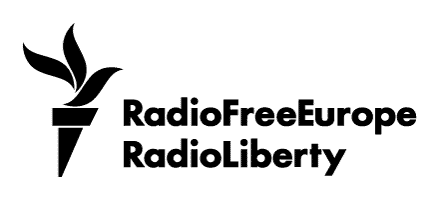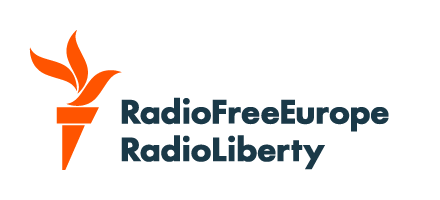His anger over the pope's speech on September 12 in Germany is echoed by many other clerics in the Muslim world.
Papal Retreat, Correction
For some, the outrage shows no sign of abating -- despite the pope's saying on September 17 that he regrets the row over his words.
"I am deeply sorry for the reactions in some countries to a few passages of my address at the University of Regensburg [in Germany], which were considered offensive to the sensibility of Muslims," Benedict said.
He also said, "These in fact were a quotation from a medieval text, which do not in any way express my personal thought."
And the pope said he hoped his apology would "appease hearts" and "clarify the true meaning of my address, which in its totality was and is an invitation to frank and sincere dialogue, with great mutual respect" between Christians and Muslims.
In his speech last week, the pope quoted Byzantine Emperor Manuel II Palaeologus speaking with a learned Persian. "Show me just what Muhammad brought that was new, and there you will find things only evil and inhuman, such as his command to spread by the sword the faith he preached," Benedict said.
The quotation was in the context of the pope's discourse on how Christian thought represents a rapprochement of biblical faith and Greek traditions of rational inquiry.
The quoting of the Byzantine emperor appeared intended to highlight the rational heritage. Manuel maintained that spreading faith through violence is "unreasonable."
'Not An Apology'
The pope's apology over the row appears to have gained some acceptance today. Turkey's most senior Muslim religious official, Ali Bardakoglu, said the pope's stated respect for Islam was a civilized position.
Bardakoglu, the head of Turkey's Directorate-General for Religious Affairs, said last week that he was deeply offended by the pope's remarks. He said Roman Catholic crusaders had committed atrocities against Muslims in the name of Christianity.
The Turkish reaction is particularly significant because the pope is to visit Turkey in November. The pope is expected to go ahead with that trip despite the row over his speech.
In Egypt, the opposition group the Muslim Brotherhood welcomed the pope's efforts to defuse tensions. But the deputy leader of the group, Muhammad Habib, called it only a "step" toward a full apology.
"I want to emphasize that the remarks which came from the pope today are a retreat from what he said in his lecture on [September 12] in Germany, and this is a good step toward an apology, even though it was not a clear apology toward Islam and the Muslim people," Habib said.
Calls For Calm
Political leaders have sought to calm feelings by calling on religious leaders of all denominations to promote reconciliation.
European Commission spokesman Johannes Laitenberger said reactions should remain proportionate and not use the pope's quotes "out of context."
French President Jacques Chirac said as part of a radio address that one must "avoid everything that sparks tensions." He did not directly mention Benedict's remarks.
At the UN, the president of the General Assembly also stressed tolerance.
Haya Rashid al-Khalifa, the first Muslim woman to head the assembly, said religious forces could advance dialogue, reconciliation, and peace, and help people embrace difference.
Clash Of Cultures
 Indian-born writer Salman Rushdie (epa file photo)
Indian-born writer Salman Rushdie (epa file photo)
The furor raised by the publication in Europe of cartoons believed by many Muslims to be insulting to Islam is far from being the first time that Western notions of freedom of expression have clashed with Islamic sensibilities. Below are a few of the major incidents in this long-running tension.
2005: London's Tate Britain museum removes from exhibition the "God Is Great #2" sculpture by John Latham for fear of offending Muslims, citing the "sensitive climate" after 7 July suicide bombings in London. The sculpture piece consists of three sacred religious texts -- the Koran, the Bible, and the Talmud -- embedded in a sheet of glass.
2004: Dutch filmmaker Theo van Gogh is murdered after release of his film "Submission" about violence against women in Islamic societies. Ayaan Hirsi Ali, a Somali-born member of Dutch parliament who wrote script, plans another film about Islam's attitude to gays. She has also received death threats.
2002: Nigerian journalist Isioma Daniel incenses Muslims by writing in "This Day" newspaper that Prophet Muhammad would have approved of the "Miss World" contest and might have wed a beauty queen. Muslim-Christian riots in northern city of Kaduna kill 200. Daniel flees Nigeria after a fatwa urges Muslims to kill her.
1995: An Egyptian court brands academic Nasr Hamed Abu Zaid an apostate because of his writings on Islam and annuls his marriage on grounds that a Muslim may not be married to an apostate. Abu Zaid and his wife move to the Netherlands.
1994: Taslima Nasreen flees Bangladesh for Sweden after court charges her with "maliciously hurting Muslim religious sentiments." Some Muslims demand she be killed for her book "Lajja" (Shame), banned for blasphemy and suggesting free sex.
1989: Iranian leader Ayatollah Ruhollah Khomeini calls on all Muslims to kill British author Salman Rushdie for blasphemy against Islam in his book "The Satanic Verses."
(compiled by RFE/RL)
See also:
Dutch Immigration -- The Death Of Multiculturalism
Report Says No Anti-Muslim Backlash In Europe
Vienna Conference Ends With Appeals For Understanding, Tolerance

A thematic webpage devoted to issues of religious tolerance in RFE/RL's broadcast region and around the globe.





